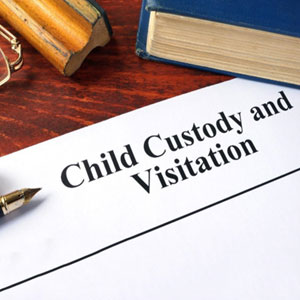Menu

Visitation and custody arrangements during a divorce are typically established through a temporary custody order. As the name suggests, this temporary order is meant to provide a framework for custody during the period while family law issues are being resolved. Typically, these arrangements remain in place for about a year, during which time the court expects the parties to finalize the custody matters.
These temporary arrangements often involve various schedules. Some common options include a 50-50 arrangement, where children spend equal time with each parent, such as a week-on, week-off schedule. Alternatively, the court may call for a two-two-three schedule, allowing for flexibility and accommodating unknown variables. In some cases, one party may be granted primary custody until these variables are addressed, and the matter is argued in a permanent custody hearing. The outcome of this hearing can result in continued primary custody, a shift to a 50-50 arrangement, or other custody adjustments, but these matters are typically resolved through the initial temporary custody order.
The key consideration in determining final custody or parenting time is the best interest of the child. To arrive at this determination, the court evaluates the stability and suitability of each party. In North Carolina, if both parents are stable, capable people with no significant concerns or constraints, the law mandates a 50-50 shared equal time schedule for both parents. However, if there are issues regarding fitness or stability, the court may adjust the arrangement. In cases where one side demonstrates less stability or a reduced ability to provide for the child’s well-being, custody or parenting time may be allocated more favorably to the party exhibiting greater stability.
To illustrate the most common issues associated with custody and parenting time arrangements, let’s start with an example of two well-intentioned people who have no mental health, substance abuse, or any similar glaring issues. In these types of cases, the main challenge often revolves around scheduling. For instance, if one parent works a third shift from 3 P.M. to midnight, it can be challenging for them to have the children overnight. It’s not a matter of fitness or ability necessarily; it’s purely a matter of scheduling. I’ve represented professionals like airline pilots and flight attendants whose jobs involve frequent travel. While they are well-suited to raise children, their schedules did not allow for it, causing a substantial issue.
The second stage of issues comprises situations where fitness is a concern. This may involve a history of substance abuse, mental health challenges, or financial stability concerns that have implications that would extend to the child’s housing situation. These issues can significantly impact the court’s decision on the appropriate custody and parenting time arrangements.
The most significant mistake I observe parents making is believing that the court cares about how they feel toward the other parent. In reality, the court has no concern for whether you like or dislike the other parent. The court’s primary expectation is that you find a way to get along. Unfortunately, situations where parents make decisions regarding their children with the sole intention of causing harm or frustration to the other parent are extremely common.
For example, a parent might sign their child up for a weekend baseball league, knowing it coincides with the other parent’s visitation schedule. This obligates the other parent’s time without their agreement, in essence. The motive behind this action is often to force custody by making it appear as though the other parent cannot fulfill their responsibilities. In such cases, they refuse to communicate or make collaborative decisions for the children, instead using the children as pawns to upset the other party.
The court hates this behavior, particularly when children are used as tools to inflict emotional, and sometimes even physical, harm on the other parent. Judges emphasize the importance of cooperation. When emotional hostility between parents results in actions like these or sending hostile text messages, as another example, it significantly undermines your ability to present a strong case in court.
For more information on Visitation & Custody Arrangements In An NC Divorce, an initial consultation is your next best step. Get the information and legal answers you are seeking by calling (252) 371-0127 today.

Our attorneys bring a wide range of legal, professional,
and personal experiences to their clients
Call Us Now
Wilson (252) 371-0127
Copyright©2025, Lusby Law P.A. All rights reserved.